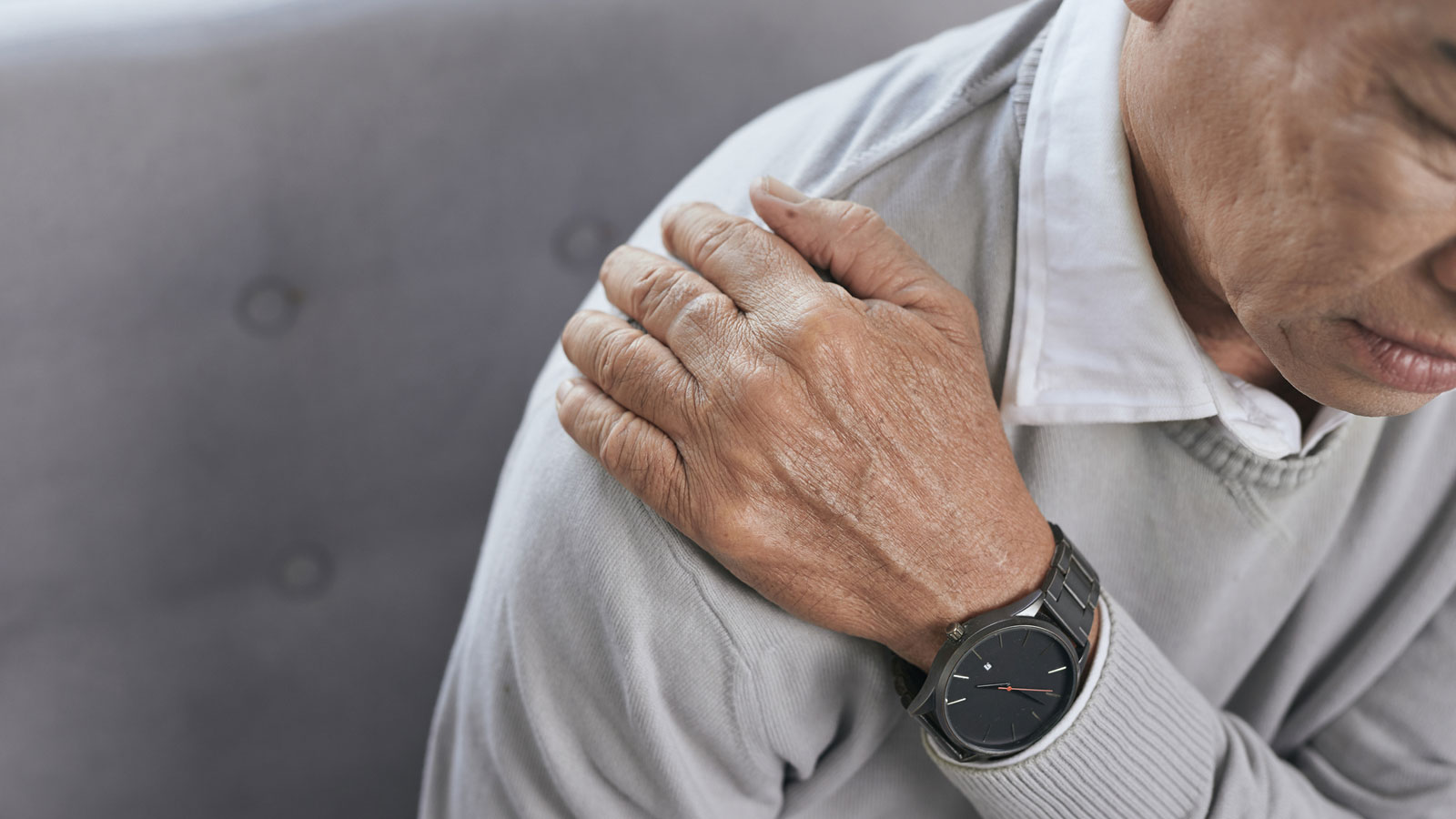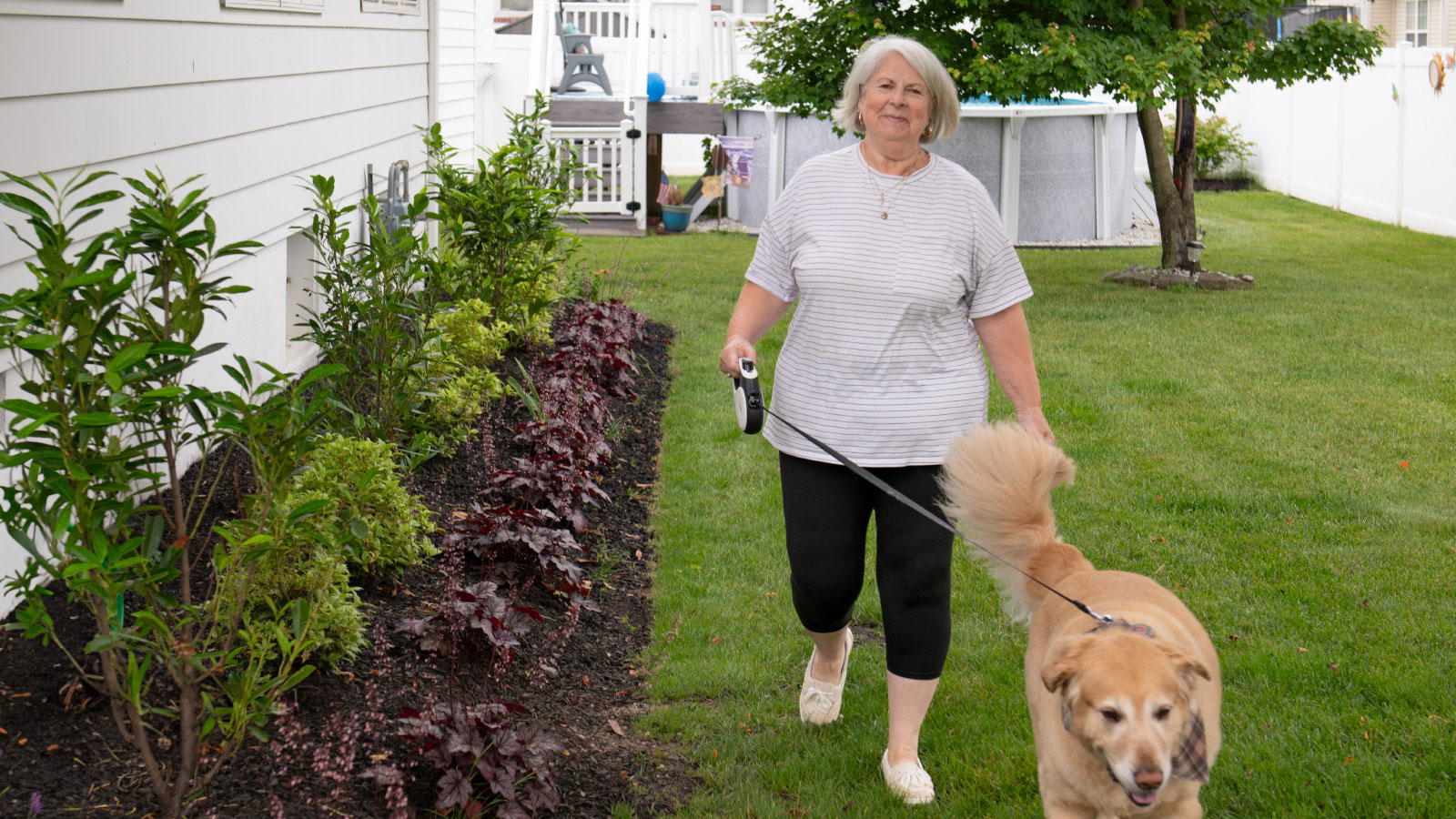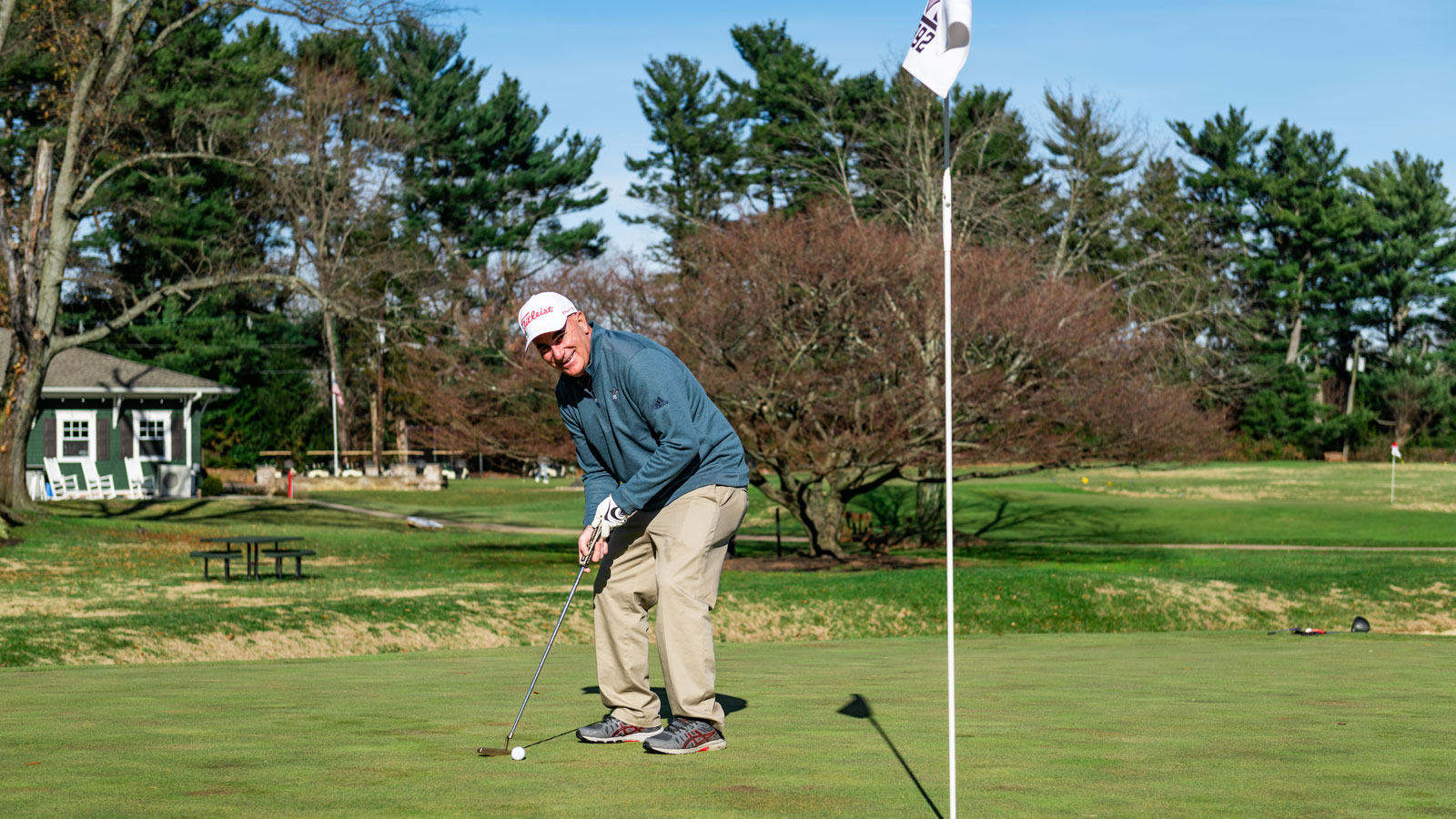What Is Reverse Shoulder Replacement?
Age, injury and arthritis can spell problems that begin with pain and end with shoulder and arm immobility. Reverse shoulder replacement may be a solution.

By Andrea Bowers, MD, Virtua Orthopedic Surgeon
The shoulder has a range of motion greater than any other joint in the entire body, except when things go wrong. Age, injury and arthritis can spell problems that begin with pain and end with shoulder and arm immobility. Although the number of shoulder replacements nationwide falls far behind those of hip and knee replacements, about 53,000 people a year get them, according to the Agency for Healthcare Research and Quality.
How does reverse shoulder replacement work?
In a patient with a tear in the rotator cuff (the tendons and muscles that support the shoulder) or arthritis in the shoulder, the shoulder joint doesn’t function properly. The reverse shoulder replacement changes the center of rotation for the joint and allows other tissues to stabilize it. It relies on the deltoid muscle (another shoulder muscle), instead of the rotator cuff, to power and position the arm.
During the surgery, the position of the shoulder joint’s ball and socket is reversed—the ball is positioned on the socket side of the joint and the socket is on the ball side. In order for the reverse replacement to perform well, the deltoid has to function well. This procedure is sometimes used to correct a prior joint replacement where the rotator cuff tendons are torn and can’t be repaired.
Who is a candidate for reverse shoulder replacement?
Generally, the reverse replacement is considered a "last resort” treatment option for the following:
- Patients who are somewhat older (65-70+ years) and who have a lower activity level, but are healthy enough to physically withstand a major surgery
- Patients who have a reduced quality of life because of shoulder pain and dysfunction and have tried non-operative treatments unsuccessfully including activity modification, physical therapy, oral medication and corticosteroid injections
- Patients who are willing to take certain postoperative precautions to protect their new shoulder including no heavy lifting (not more than 10 pounds with the arm in isolation), avoiding using the arm to push the body up out of a chair, and avoiding reaching too far behind the back
The specific diagnoses for which the reverse replacement may be a treatment option include:
- Rotator cuff tear arthropathy (arthritis that develops when the rotator cuff tears and isn’t properly repaired)
- Rotator cuff tears that can’t be repaired causing pain and inability to raise the arm
- Osteoarthritis with a severely deformed socket that can’t be repaired by a traditional shoulder replacement
- Rheumatoid arthritis or other inflammatory arthritis
- Acute fractures that can’t be repaired with standard methods like plates/screws
- Post-traumatic arthritis
How long is recuperation for this type of surgery?
Most patients stay in the hospital overnight for monitoring and to receive antibiotics and pain medication. Patients wear a sling for two weeks to allow the tissues around the shoulder to rest. The sling is removed several times daily so the patient can work on range of motion for the elbow, wrist and hand. Many patients are able to recuperate their arm with simple home exercises, while others prefer formal physical therapy.
Dramatic improvements in pain occur in the first few weeks and function improves within a few months. Patients can expect continued improvement throughout the first year.



